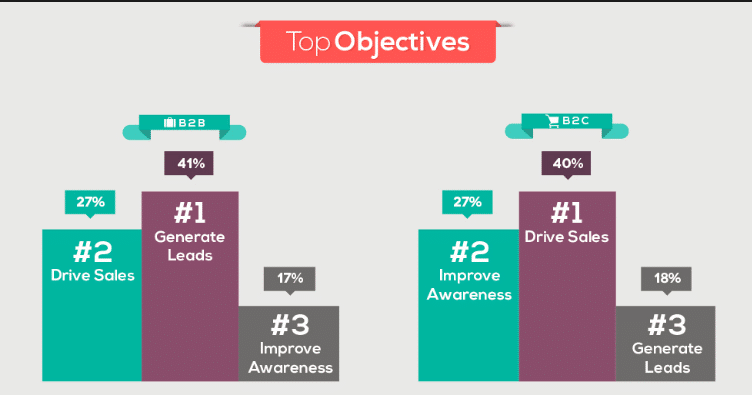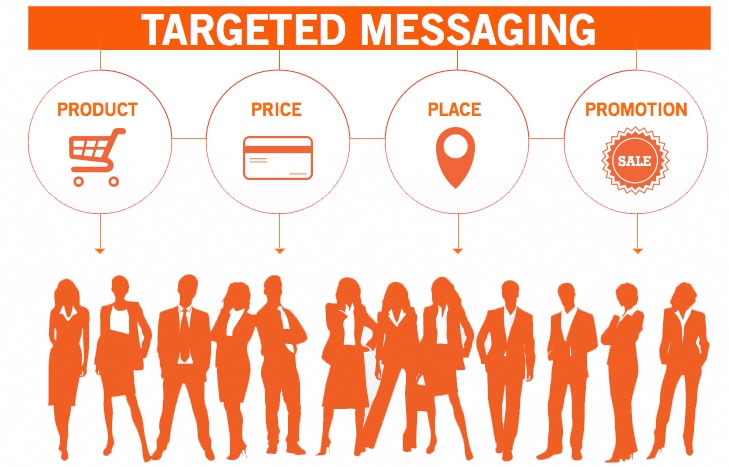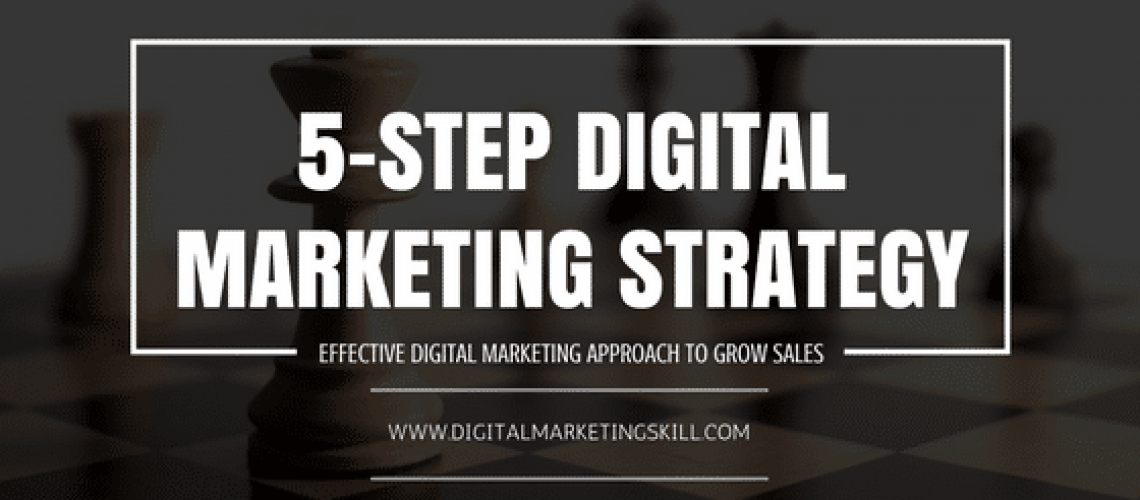The thing about digital marketing strategies is that almost every company has one, even if you’re not the one actively controlling it.
Even if you’ve never spent a minute on Facebook, Twitter, Pinterest or any other Web property or it might be based on mentions of your company’s name by individual users — or by your obvious lack of participation.
Don’t have a digital marketing strategy?
Get one today by attending our professional digital marketing certification course.
Get 50% Discount to Master ALL Aspects of Digital Marketing That Can Earn You $2,500 - $5,000 a month (Even if you are a complete beginner!)
Our students that intentionally implement what they learn from our digital marketing course make back the entire course fee within a single month or more after completing our course because our course gives them many income generating options with unlimited earning potential with no age or location barrier. The best part is no technical skills are required.
An opportunity to change your lifestyle and make money working from anywhere in the world. The results our students get from our digital marketing course prove this could be applied to any market or country and that it is designed for any skill level and work background.
*By signing up, you agree to our privacy policy and terms of service.
Click the link to signup => https://digitalmarketingskill.com/digital-marketing-training-course/
Because your presence on different digital marketing properties matters more than ever, it’s a good idea to take time out of your schedule to regularly evaluate how well your strategy is performing.
Here’s how to do it:
What is a Marketing Strategy?
A marketing strategy is a long-term, high-level plan that outlines how a business or organization will achieve its marketing objectives and reach its target audience. It defines the overall approach and direction for marketing efforts, including the specific tactics, channels, and resources that will be used.
What is Digital Marketing Strategy?
A digital marketing strategy is a comprehensive plan that outlines how a business or organization will achieve its marketing objectives and reach its target audience through digital channels. It defines the overall approach and direction for marketing efforts, including the specific tactics, channels, and resources that will be used to execute the strategy.
5-Step Effective Digital Marketing Approach (Strategy)
Step 1: Evaluate your digital marketing goals

The first step in any good digital marketing strategy evaluation is a thorough examination of the specific goals you’ve set for yourself in the past. (Obviously, if you haven’t yet created any goals, this is the first issue you’ll want to tackle!)
Digital marketing goals include items such as:
- The number of social shares your blog posts receive
- The size of your fan base on social networking websites
- Mentions of your brand name on social media sites
- The number of positive reviews left about your company on sites like Google Reviews and Yelp
- Inbound website visitors from social networks
- Total number of conversions resulting from social traffic
If you’ve previously set up goals, take the time to determine whether or not you’re hitting your target projections. Also, look to see if the goals you set in the past still make sense for your company based on its current performance. If necessary, revise your goals to accommodate new objectives or to account for changes in product/service offerings.
Step 2: Reexamine your target customer profiles

In addition, it’s important to remember that any good digital marketing plan is founded on a series of well-constructed customer profiles that outline the specific types of people you’d like to reach through your campaigns.
So while you shouldn’t launch a new marketing campaign until you have some idea of your target customer’s demographics, interests and Web activities, you’ll also want to continually develop this profile based on your newest data.
As an example, if you set out to target young men on Facebook but find out that the majority of your “Likes” come from middle-aged women, you may need to reevaluate all elements of your marketing campaigns to account for this new customer data.
Step 3: Take a look at your digital presence
As you reexamine the types of customers you target, you’ll also want to periodically assess whether or not you’re actively participating in the right digital properties.
For example, suppose you’re in an industry that targets young women, ages 18-26. If you launched your digital marketing campaign before the advent of the social networking darling, Pinterest, you could be missing out on a potentially tremendous source of traffic if you never took the time to determine whether or not you’re active on the right sites! Get digital marketing techniques here.
Step 4: Evaluate your messaging strategies

Next, take a look at the specific types of messages you’re releasing as part of your digital marketing campaigns. Specifically, evaluate:
- Which types of messages (i.e. text-based status updates, blog posts, videos, podcasts, etc.) are performing best with your audience?
- Do the words you’ve chosen for various messaging pieces seem to resonate with your audience?
- How frequently are your marketing materials being shared virally amongst users?
If your digital marketing message is in line with your customer’s expectations, you’ll see high levels of engagement with your branded materials, as well as a high number of social shares as people pass your content on to others. If you aren’t yet seeing these results, this could indicate a mismatch between your company’s messaging and your customers’ interests.
Step 5: Check your digital marketing ROI

The last thing you’ll want to evaluate when it comes to assessing your digital marketing performance is your overall ROI. Now, calculating your exact returns can be difficult, but you’ll ultimately find that the data you’re able to produce is well worth your efforts.
To measure ROI, you’ll need to track two different variables:
- The amount you’ve invested into your digital marketing campaigns (being sure to account for both financial investments and time expenditures), and
- The financial benefit of any conversions you’re tracking.
For a rough idea of how this looks, imagine that your company has spent $500 on digital marketing materials and $500 in labour hours to promote them. Now, if you determine that inbound visitors from social networking websites have accounted for ten sales at $20 each (for a gross profit of $200 total), you can see that you’ll want to scale back or realign your digital marketing efforts.
If on the other hand, you would notice that visitors from one particular social media website have accounted for 80 percent of those sales, you may decide to refocus your efforts to concentrating on the traffic streams that have proven most valuable to your company’s bottom line.
8 Types of Digital Marketing to Reach Your Audience
1. Content Marketing
Content marketing is a powerful strategy that focuses on creating and sharing valuable content to attract and engage your target audience. When you produce high-quality articles, videos, infographics, or podcasts, you provide useful information that addresses your audience’s needs and interests. This can help you build trust and also position your brand as an authority in your niche.
2. Search Engine Optimization (SEO)
Optimizing your website, content, and online presence to improve visibility and ranking in search engine results, driving more organic traffic.
Start by conducting keyword research to identify terms your audience is searching for. Create high-quality, informative content that answers their questions and includes these keywords naturally.
Additionally, focus on building backlinks from reputable sites to boost your credibility. Finally, you need to monitor your SEO performance and adjust your strategies to stay ahead of the competition and drive sustainable growth.
3. Social Media Marketing
You can leverage social media platforms to engage with your target audience, build brand awareness, and drive conversions. Platforms like Facebook, Instagram, Twitter, and LinkedIn to connect with your audience.
To succeed, you need to identify the platforms where your target audience spends their time and tailor your content accordingly.
Start by sharing engaging content such as posts, videos, and stories to help build brand awareness and foster community interaction. Finally, use analytics tools to track engagement and adjust your approach based on what resonates most.
4. Email Marketing
Email marketing is a powerful strategy that allows you to connect directly with your audience in a personalized way. It involves
sending targeted, personalized email campaigns to nurture leads and customers. By building a targeted email list, you can share valuable content, promotions, and updates that resonate with your subscribers.
5. Paid Advertising
Paid advertising is a strategic approach to boost your brand’s visibility and reach a targeted audience quickly. You can use platforms like Google Ads, Facebook Ads, and other paid channels to reach and acquire new customers.
6. Video Marketing
This is an engaging strategy that helps capture attention and conveys your message effectively. You can create and distribute engaging video content to educate, entertain, and convert your audience. With platforms like YouTube, TikTok, and Instagram Reels, you can create compelling videos that showcase your products, share customer testimonials, or provide valuable tutorials.
7. Influencer Marketing
Partnering with influential individuals or industry experts to promote your products or services to their audience is a great way to enhance your brand visibility, credibility and drive more sales.
8. Podcasting
Podcasting is an increasingly popular digital marketing strategy that allows you to connect with your audience through engaging audio content. By creating informative and entertaining episodes, you can share insights, interview experts, or discuss industry trends, establishing your brand as a thought leader.
Conclusion
An effective digital marketing approach is essential for reaching your audience and achieving your business goals. You can leverage strategies such as SEO, content marketing, social media engagement, email marketing, paid advertising, video marketing, and influencer collaborations, to create a comprehensive plan that resonates with your target market.
Each strategy plays a vital role in building brand awareness, driving traffic, and fostering customer loyalty. With the right mix of strategies and a commitment to delivering value, your digital marketing efforts can lead to significant growth and success.
More articles:
- Why You Should Have a Digital Strategy
- Search Engine Optimization (SEO) | A Complete Beginner Guide To Ranking Your Website
- What is Digital Marketing? A Complete Step by Step Guide For Newbies
- 7 Common SEO Mistakes To Avoid And How To Fix Them
- How to Start Affiliate Marketing for Beginners | Step by Step Guide
- How To Market Yourself Online [Infographic]
- 6 Steps To Building An Online Marketing Strategy In Nigeria
- Lead Generation | A Complete Beginner Guide To Generating Leads
- 10 Tips On How To Generate Leads On Twitter To Drive More Sales



